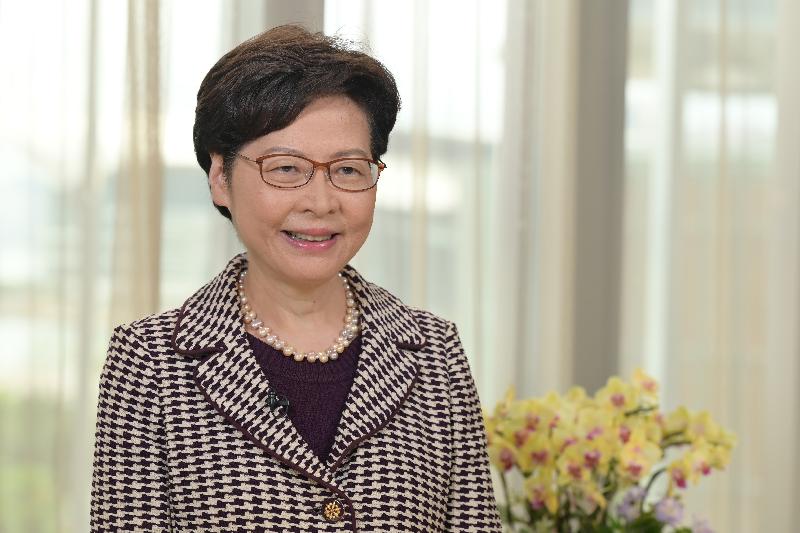Following is the video speech by the Chief Executive, Mrs Carrie Lam, at the World Cities Summit 2021 held online this morning (June 21):
Fellow city leaders, ladies and gentlemen,
It gives me great pleasure to speak to you at the seventh World Cities Summit. It has been over a decade since I attended the second World Cities Summit in my then capacity as Secretary for Development. Much has changed since then all over the world – advances in technology, emergence of digital economy, geopolitical tension, and more recently, the COVID-19 pandemic which has made social gatherings and face-to-face interactions a luxury. But it is exactly amidst such disruptions that we must redouble our efforts, as city leaders, to create a liveable and sustainable environment for our citizens.
Before we can consider our long-term future, we must first overcome the imminent challenge of COVID-19. In Hong Kong, from the day the first case was confirmed in January last year, we have been adopting a whole-government and collaborative approach in our anti-epidemic work. Our response is grounded in science with the advice of experts from within the Government and from the universities. Technology has been widely adopted with the launching of StayHomeSafe Apps and LeaveHomeSafe Apps to help monitor people on home quarantine and trace contacts of infected patients respectively; infection controls through the use of robotics, antiviral coating, reusable face masks, etc. are widely applied in different settings. More importantly, thanks to our robust public hospital system and the dedication of medical staff, every COVID-19 patient is being properly cared for in hospitals and related facilities.
With the high compliance of Hong Kong people with infection control protocols, and vigorous testing and tracing, Hong Kong has been able to keep the number of infections at a relatively low level. Our imminent task is to raise the vaccination rate amongst local residents in order to build the needed immunity. A city cannot be liveable or sustainable if it is not safe, both in terms of public health as well as law and order, which people of Hong Kong have known so well after having been confronted with unprecedented challenges in the past two years.
Another area that calls for innovation, technology, citizen’s participation and joint action is climate change. Under the "Hong Kong's Climate Action Plan 2030+", Hong Kong is committed to reducing Hong Kong's carbon intensity by 65 per cent to 70 per cent between 2005 and 2030. We are making good progress in realising that target, with carbon intensity in 2018 about 36 per cent lower than in 2005.
Over the past decade, the Hong Kong Government has allocated more than US$6 billion to a wide variety of energy-saving and renewable-energy measures. They include introducing waste-to-energy and waste-to-resources facilities and promoting electric vehicles and vessels, with a goal of zero vehicular emissions before 2050. Our two power companies have also joined these efforts, investing some US$5 billion in decarbonisation projects.
Following changes in fuel mix, with the proportion of coal in electricity generation reduced from 50 per cent to less than 25 per cent within just six years, Hong Kong's carbon emissions peaked in 2014 and I have already announced that Hong Kong would strive to achieve carbon neutrality before 2050. It is an ambitious target, but one we are determined to accomplish. Looking ahead, we will continue to phase out Hong Kong's remaining coal plants, while promoting renewable energy. We will also work to increase the share of zero-carbon energy generated in our fuel mix, so as to achieve our 2030 carbon intensity reduction target as much as five years earlier.
Again, collaboration is essential in tackling climate change. Hong Kong looks forward to working with other cities.
My thanks to Singapore's Centre for Liveable Cities and Urban Redevelopment Authority for organising this inspiring global event. I wish you all a rewarding Summit. Thank you.
Follow this news feed: East Asia






